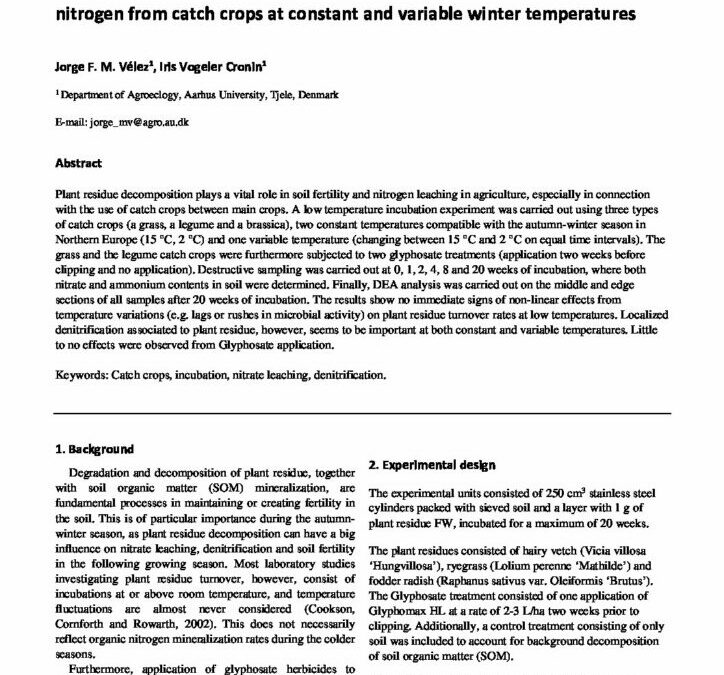Effects from plant type and glyphosate application on mineralization of nitrogen from catch crops

Plant residue decomposition plays a vital role in soil fertility and nitrogen leaching in agriculture, especially in connection with the use of catch crops between main crops. A low temperature incubation experiment was carried out using three types of catch crops (a grass, a legume and a brassica), two constant temperatures compatible with the autumn-winter season in Northern Europe (15 °C, 2 °C) and one variable temperature (changing between 15 °C and 2 °C on equal time intervals).
The grass and the legume catch crops were furthermore subjected to two glyphosate treatments (application two weeks before clipping and no application). Destructive sampling was carried out at 0, 1, 2, 4, 8 and 20 weeks of incubation, where both nitrate and ammonium contents in soil were determined. Finally, DEA analysis was carried out on the middle and edge sections of all samples after 20 weeks of incubation. The results show no immediate signs of non-linear effects from temperature variations (e.g. lags or rushes in microbial activity) on plant residue turnover rates at low temperatures. Localized denitrification associated to plant residue, however, seems to be important at both constant and variable temperatures. Little to no effects were observed from Glyphosate application.
